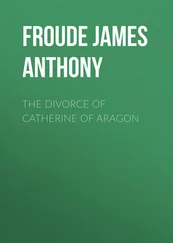James Froude - Bunyan
Здесь есть возможность читать онлайн «James Froude - Bunyan» — ознакомительный отрывок электронной книги совершенно бесплатно, а после прочтения отрывка купить полную версию. В некоторых случаях можно слушать аудио, скачать через торрент в формате fb2 и присутствует краткое содержание. Жанр: foreign_antique, foreign_prose, на английском языке. Описание произведения, (предисловие) а так же отзывы посетителей доступны на портале библиотеки ЛибКат.
- Название:Bunyan
- Автор:
- Жанр:
- Год:неизвестен
- ISBN:нет данных
- Рейтинг книги:5 / 5. Голосов: 1
-
Избранное:Добавить в избранное
- Отзывы:
-
Ваша оценка:
- 100
- 1
- 2
- 3
- 4
- 5
Bunyan: краткое содержание, описание и аннотация
Предлагаем к чтению аннотацию, описание, краткое содержание или предисловие (зависит от того, что написал сам автор книги «Bunyan»). Если вы не нашли необходимую информацию о книге — напишите в комментариях, мы постараемся отыскать её.
Bunyan — читать онлайн ознакомительный отрывок
Ниже представлен текст книги, разбитый по страницам. Система сохранения места последней прочитанной страницы, позволяет с удобством читать онлайн бесплатно книгу «Bunyan», без необходимости каждый раз заново искать на чём Вы остановились. Поставьте закладку, и сможете в любой момент перейти на страницу, на которой закончили чтение.
Интервал:
Закладка:
James Anthony Froude
Bunyan
CHAPTER I
EARLY LIFE
'I was of a low and inconsiderable generation, my father's house being of that rank that is meanest and most despised of all families in the land.' 'I never went to school, to Aristotle or Plato, but was brought up in my father's house in a very mean condition, among a company of poor countrymen.' 'Nevertheless, I bless God that by this door He brought me into the world to partake of the grace and life that is by Christ in His Gospel.' This is the account given of himself and his origin by a man whose writings have for two centuries affected the spiritual opinions of the English race in every part of the world more powerfully than any book or books, except the Bible.
John Bunyan was born at Elstow, a village near Bedford, in the year 1628. It was a memorable epoch in English history, for in that year the House of Commons extorted the consent of Charles I. to the Petition of Right. The stir of politics, however, did not reach the humble household into which the little boy was introduced. His father was hardly occupied in earning bread for his wife and children as a mender of pots and kettles: a tinker, – working in neighbours' houses or at home, at such business as might be brought to him. 'The Bunyans,' says a friend, 'were of the national religion, as men of that calling commonly were.' Bunyan himself, in a passage which has been always understood to refer to his father, describes him 'as an honest poor labouring man, who, like Adam unparadised, had all the world to get his bread in, and was very careful to maintain his family.' In those days there were no village schools in England; the education of the poor was an apprenticeship to agriculture or handicraft; their religion they learnt at home or in church. Young Bunyan was more fortunate. In Bedford there was a grammar school, which had been founded in Queen Mary's time by the Lord Mayor of London, Sir William Harper. Hither, when he was old enough to walk to and fro, over the mile of road between Elstow and Bedford, the child was sent, if not to learn Aristotle and Plato, to learn at least 'to read and write according to the rate of other poor men's children.'
If religion was not taught at school, it was taught with some care in the cottages and farmhouses by parents and masters. It was common in many parts of England, as late as the end of the last century, for the farmers to gather their apprentices about them on Sunday afternoons, and to teach them the Catechism. Rude as was Bunyan's home, religious notions of some kind had been early and vividly impressed upon him. He caught, indeed, the ordinary habits of the boys among whom he was thrown. He learnt to use bad language, and he often lied. When a child's imagination is exceptionally active, the temptations to untruth are correspondingly powerful. The inventive faculty has its dangers, and Bunyan was eminently gifted in that way. He was a violent, passionate boy besides, and thus he says of himself that for lying and swearing he had no equal, and that his parents did not sufficiently correct him. Wickedness, he declares in his own remorseful story of his early years, became a second nature to him. But the estimate which a man forms of himself in later life, if he has arrived at any strong abhorrence of moral evil, is harsher than others at the time would have been likely to have formed. Even then the poor child's conscience must have been curiously sensitive, and it revenged itself upon him in singular tortures.
'My sins,' he says, 'did so offend the Lord that even in my childhood He did scare and affright me with fearful dreams, and did terrify me with dreadful visions. I have been in my bed greatly afflicted while asleep, with apprehensions of devils and wicked spirits, who still, as I then thought, laboured to draw me away with them, of which I could never be rid. I was afflicted with thoughts of the Day of Judgment night and day, trembling at the thoughts of the fearful torments of hell fire.' When, at ten years old, he was running about with his companions in 'his sports and childish vanities,' these terrors continually recurred to him, yet 'he would not let go his sins.'
Such a boy required rather to be encouraged than checked in seeking innocent amusements. Swearing and lying were definite faults which ought to have been corrected; but his parents, perhaps, saw that there was something unusual in the child. To them he probably appeared not worse than other boys, but considerably better. They may have thought it more likely that he would conquer his own bad inclinations by his own efforts, than that they could mend him by rough rebukes.
When he left school he would naturally have been bound apprentice, but his father brought him up at his own trade. Thus he lived at home, and grew to manhood there, forming his ideas of men and things out of such opportunities as the Elstow neighbourhood afforded.
From the time when the Reformation brought them a translation of it, the Bible was the book most read – it was often the only book which was read – in humble English homes. Familiarity with the words had not yet trampled the sacred writings into practical barrenness. No doubts or questions had yet risen about the Bible's nature or origin. It was received as the authentic word of God Himself. The Old and New Testament alike represented the world as the scene of a struggle between good and evil spirits; and thus every ordinary incident of daily life was an instance or illustration of God's Providence. This was the universal popular belief, not admitted only by the intellect, but accepted and realised by the imagination. No one questioned it, save a few speculative philosophers in their closets. The statesman in the House of Commons, the judge on the Bench, the peasant in a midland village, interpreted literally by this rule the phenomena which they experienced or saw. They not only believed that God had miraculously governed the Israelites, but they believed that as directly and immediately He governed England in the seventeenth century. They not only believed that there had been a witch at Endor, but they believed that there were witches in their own villages, who had made compacts with the devil himself. They believed that the devil still literally walked the earth like a roaring lion: that he and the evil angels were perpetually labouring to destroy the souls of men; and that God was equally busy overthrowing the devil's work, and bringing sin and crimes to eventual punishment.
In this light the common events of life were actually looked at and understood, and the air was filled with anecdotes so told as to illustrate the belief. These stories and these experiences were Bunyan's early mental food. One of them, which had deeply impressed the imagination of the Midland counties, was the story of 'Old Tod.' This man came one day into court, in the Summer Assizes at Bedford, 'all in a dung sweat,' to demand justice upon himself as a felon. No one had accused him, but God's judgment was not to be escaped, and he was forced to accuse himself. 'My Lord,' said Old Tod to the judge, 'I have been a thief from my childhood. I have been a thief ever since. There has not been a robbery committed these many years, within so many miles of this town, but I have been privy to it.' The judge, after a conference, agreed to indict him of certain felonies which he had acknowledged. He pleaded guilty, implicating his wife along with him, and they were both hanged.
An intense belief in the moral government of the world creates what it insists upon. Horror at sin forces the sinner to confess it, and makes others eager to punish it. 'God's revenge against murder and adultery' becomes thus an actual fact, and justifies the conviction in which it rises. Bunyan was specially attentive to accounts of judgments upon swearing, to which he was himself addicted. He tells a story of a man at Wimbledon, who, after uttering some strange blasphemy, was struck with sickness, and died cursing. Another such scene he probably witnessed himself, 1 1 The story is told by Mr. Attentive in the 'Life of Mr. Badman;' but it is almost certain that Bunyan was relating his own experience.
Интервал:
Закладка:
Похожие книги на «Bunyan»
Представляем Вашему вниманию похожие книги на «Bunyan» списком для выбора. Мы отобрали схожую по названию и смыслу литературу в надежде предоставить читателям больше вариантов отыскать новые, интересные, ещё непрочитанные произведения.
Обсуждение, отзывы о книге «Bunyan» и просто собственные мнения читателей. Оставьте ваши комментарии, напишите, что Вы думаете о произведении, его смысле или главных героях. Укажите что конкретно понравилось, а что нет, и почему Вы так считаете.












